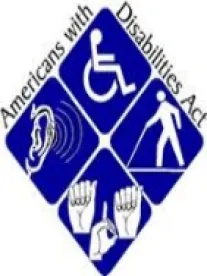Title III of the Americans with Disabilities Act (ADA) requires “places of public accommodation,” such as retail businesses and restaurants, to be accessible to persons with disabilities. Common architectural features that permit access include handicap parking, curb cuts, wheelchair ramps and other design modifications. The ADA provides a private right of action to force a non-compliant establishment to make the necessary physical alterations to allow access. If the lawsuit is successful, the ADA provides for reasonable attorneys’ fees—a prospect that has fueled the proliferation of ADA lawsuits.
The House of Representatives recently passed the ADA Education and Reform Act of 2017, which is intended to curb the filing of these lawsuits. Supporters of the legislation believe that the ADA’s original goal of providing greater access has given way to costly lawsuits that are essentially “shakedowns” to obtain attorneys’ fees. Small businesses, they say, are particularly vulnerable to these types of lawsuits.
In order to stem the tide of these lawsuits, the ADA Education and Reform Act requires that potential litigants provide the business four months’ advance notice to allow the business to correct the purported violation. The notice must specify the nature of the barrier to access and permit the owner to provide a written description of the improvements that will be made. Thereafter, the owner is required to remove the barrier, or “make substantial progress” towards compliance if remediation requires additional time due to circumstances beyond the owner’s control.
The ACLU and disability rights advocates vigorously oppose the bill as a reversal of the rights protected by the ADA. According to these groups, a business owner will not have any incentive to comply with the ADA until a lawsuit is threatened. As a result, the bill will face an uphill battle in the Senate.
The proposed legislation is silent in two key areas. First, the bill does not specifically address whether it applies to website access lawsuits, and refers only to “removal of barriers.” There is an initial question as to whether the ADA applies to consumer-facing websites. Assuming it does, given the overall language and intent of the bill, it is safe to assume that the bill’s notice provisions will apply to website access cases. If this assumption is correct, the bill would be a welcome relief to businesses that operate customer-facing websites. Currently, website operators are often sued without prior notice, and before having had an opportunity to modify websites to make them compatible with screen readers.
Second, the bill does not specifically pre-empt state law. Many states have their own disability statutes that require businesses to accommodate disabled patrons, including the removal of physical barriers to access. Some states, such as California, provide for monetary damages in addition to injunctive relief and attorneys’ fees, which are available under the ADA. In order for the federal legislation to be effective, similar state legislation will have to be enacted.






 />i
/>i
